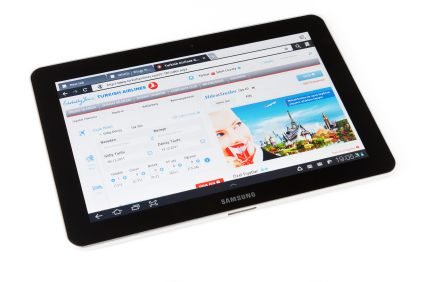What is BYOD and How Can It Help Your Business?


BYOD stands for Bring Your Own Device. And if you run a business and allow your employees to use their own computers and mobile devices for work purposes then you are implementing a BYOD initiative whether you knew it or not. BYOD has been a direct result of the increase in smartphones and tablets and their filtering into the workplace. All these different devices in the workplace posed the problem of how to integrate and use them to their full potential.
One of the chief reasons for promoting and encouraging BYOD for business is the perceived productivity boost it gives to employees. Your average employee is likely to have a preferred smartphone or tablet, from iPhones to Blackberrys, Nexus to Galaxy Tab. For employees, the morale boost that comes from feeling trusted to use their own devices, coupled with general proficiency on that device is likely to speed up workflow, maximize employ output and improve customer service in general. BYOD also provides employees with the flexibility to work out of office or on the road with a device they feel comfortable with, especially given the advances in remote access solutions. Users can now access their work Windows desktop from a range of mobile devices through their web browser. And the capabilities of modern mobile devices mean activities as different as accessing files on other computers, dealing with expenses, video conferencing are all easily achievable.
All businesses like to save money. Allowing employees to use their own devices in a business context and integrating them into the workplace has enable organizations to cut back on the cost of supplying all staff with company smartphones or even tablets. These employees have their own contracts and upgrade options which helps businesses avoid pricey company-wide upgrades of software and the need to keep in line with the latest iterations of popular smartphones. The BYOD policy has been particularly popular in emerging markets such as Brazil and Russia, where companies can significantly reduce their start-up costs by leveraging their employees’ mobile devices.
While BYOD is a trend that can’t be bucked, it is not without its drawbacks. Almost half of enterprises that allow employee-owned devices to access the company’s network have experienced data breaches. This is usually a result of users downloading malware hidden within legitimate apps and opening malicious links. Managing the sheer variety of devices has also proved problematic. Nevertheless, certain software is addressing the problem. If coupled with a remote desktop protocol client that allows access to a desktop with all its files and applications, BYOD can be used without it being necessary to install any software on the user’s device, which in itself can reduce security risks. Add to this the fact that no data is stored on the device with browser-based remote access solutions, and in the event that an employee leaves or a device is lost, no data is compromised. An effective company-wide BYOD policy and security guidelines for personal devices can also facilitate the process.
